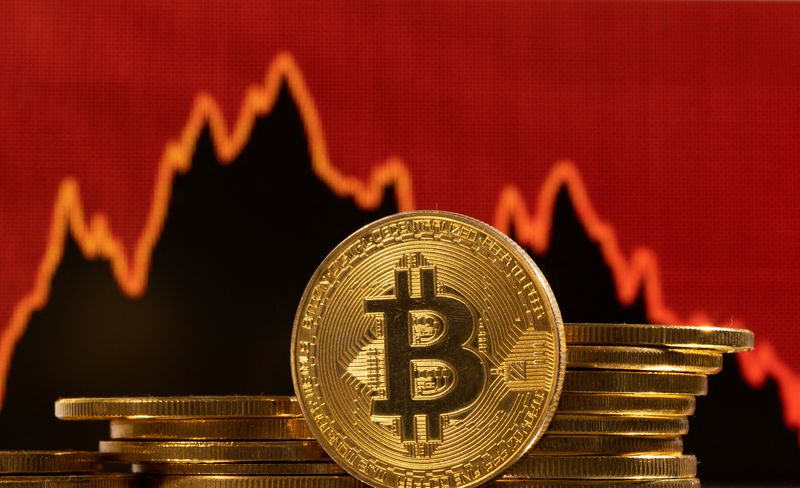Investing.com - Bitcoin has started the new week in demand, with the world’s most popular cryptocurrency surging close to its all-time high. And more gains look likely.
Why Is Bitcoin Going Up?
The surge in Bitcoin's price is driven by a combination of factors including increased investor enthusiasm. Inflows into crypto exchange-traded funds (ETFs) gathered pace as the second quarter drew to a strong open, snapping a two-week outflow streak.
The first spot Bitcoin ETFs were approved by the U.S. Securities and Exchange Commission in January. They trade on U.S. stock exchanges and allow institutions and retail investors to gain exposure to Bitcoin without directly owning the underlying asset.
Another factor driving Bitcoin higher is the upcoming so-called Bitcoin “halving,” scheduled for April 20, which is designed to limit the supply of Bitcoin to control its inflation. This has historically led to a surge in Bitcoin's price, and last took place in 2020.
”From a purely mechanical perspective, the Bitcoin halving event reduces the pace of Bitcoin creation used for validator rewards, which complement the validator revenue generated by transaction fees,” said Ken Timsit, Managing Director at Cronos Labs.
“The number of new Bitcoins created annually is currently 1.6% of the maximum supply of 21 million Bitcoin. This number will decrease to 0.8%. Less Bitcoin to validators means less selling pressure, and historically this phenomenon has led to a 9-12 month period of upwards trajectory for the price of Bitcoin.”
Bitcoin Price Prediction
At 09:10 ET (13:10 GMT), Bitcoin traded 4.2% higher at $72,195, climbing past the $71,000 level for the first time since mid-March.
The digital currency has risen more than 140% in the last 12 months, and hit a record high above $73,000 on March 13.
“This bull is different. ETFs have propelled Bitcoin into the institutional sphere, making it a serious player for long-term investments. With the Bitcoin halving event in mid April 2024 on the horizon, we’re looking at potentially long-lasting market shifts,” said Denis Petrovcic, CEO at Blocksquare.
“I strongly believe that Bitcoin is destined to become a reserve asset for various governments. As network transaction fees are bound to increase alongside Bitcoin’s price, this narrative should be highlighted to underscore the future growth of Bitcoin,” Petrovcic added.
SkyBridge Capital's Anthony Scaramucci also remains bullish on Bitcoin, highlighting the rapid influx of over $10 billion in the first quarter alone into Bitcoin, outpacing the growth of the equivalent gold ETF which took a year to reach the same milestone.
Scaramucci set a conservative target of $170,000 for Bitcoin in the current cycle. However, he acknowledged the speculative nature of the market and the impact of waves of adoption and demand.
Other Crypto Prices Today
Bitcoin’s popularity has rubbed off on other digital currencies, with Scaramucci highlighting its role as the leading asset in the space, which also includes other cryptocurrencies like Solana and Avalanche.
“Bitcoin is the big Kahuna. We also like Solana, fully disclosed. We have smaller positions like Avalanche, and we're looking at some other tokens,” he said.
The total crypto market capitalization was roughly $2.6 trillion at the start of this month, and CEO of blockchain startup Ripple, Brad Garlinghouse, told CNBC in an interview that he sees the combined market capitalization of the cryptocurrency market topping $5 trillion this year.
“I’m very optimistic. I think the macro trends, the big picture things like the ETFs, they’re driving for the first time real institutional money,” Garlinghouse said.
How To Invest In Crypto
Cryptocurrencies have time and again shown their potential for explosive growth, with a continued focus on their revolutionary technology and implementation cases.
Explore the top cryptocurrency Exchange-Traded Funds to maximize your portfolio's potential. Dive into our comprehensive list of the top Bitcoin Crypto ETFs, carefully curated to provide you with diversified exposure to this exciting asset class, without the complexities of physical ownership.
